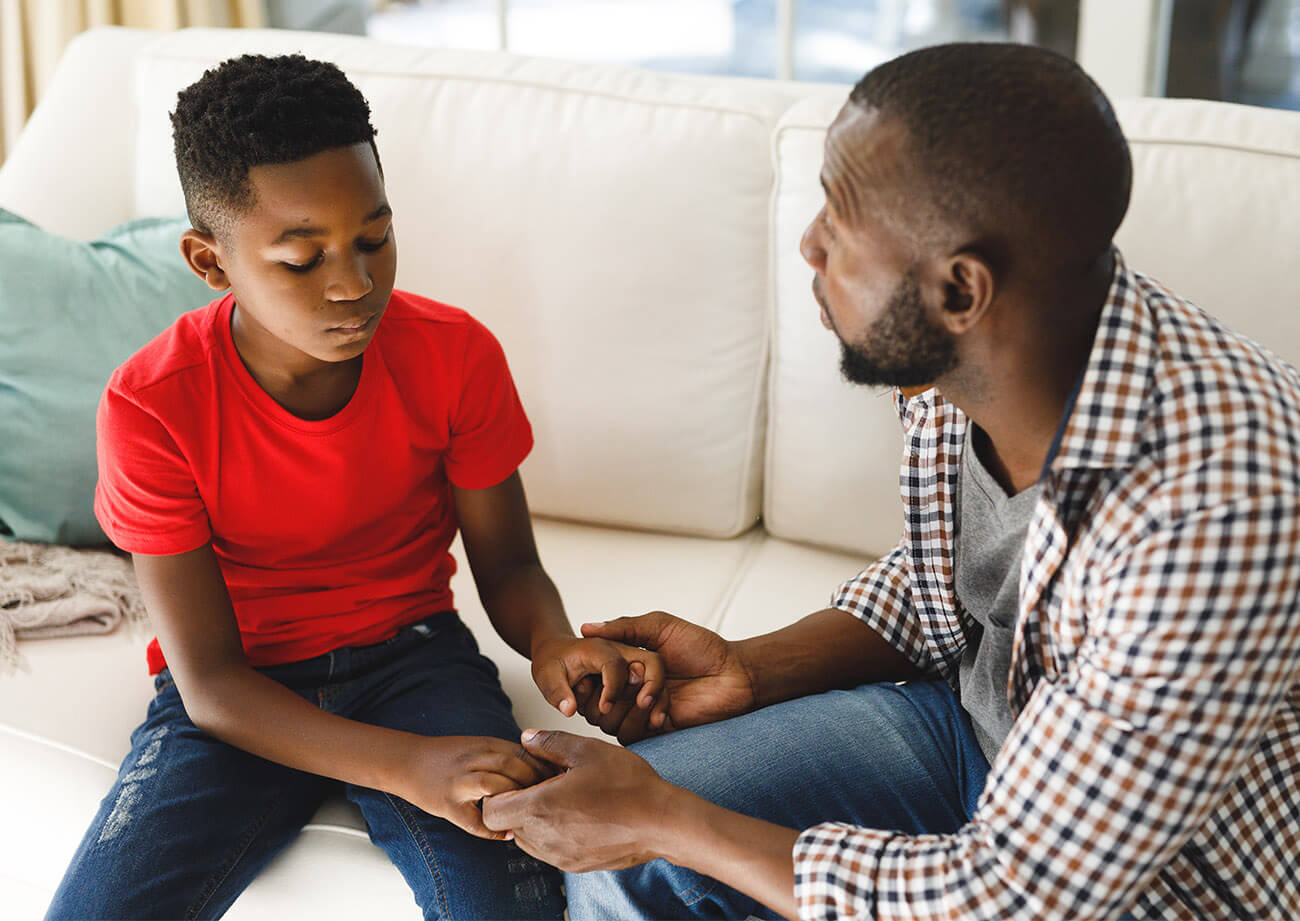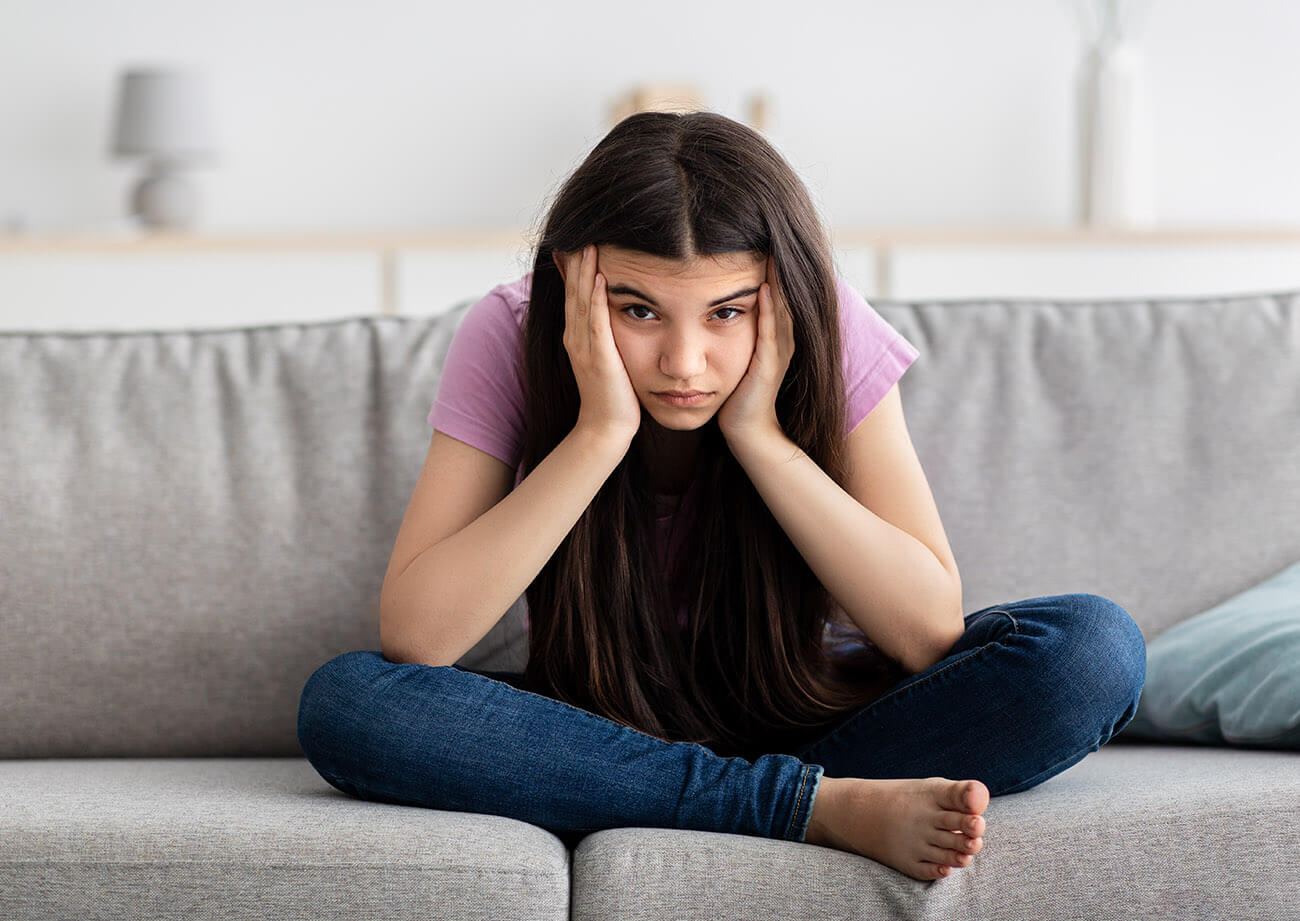3 Alternatives to Spanking & Physical Punishment
Many adults grew up in a household where spanking was normal. But in recent years, parenting research has continued to suggest that spanking can have damaging effects on a child’s brain and well-being – similar to the effects of more intense physical abuse. This has left many parents and caregivers with the desire to do something differently – to find a solution to discipline or problem solving that doesn’t involve physical harm.

By Sarah R. Moore
Founder of Dandelion Seeds Positive Parenting & Trusted Parenting Network Member
This is a key part of peaceful or authoritative parenting, which calls for a parent to first work on themselves before diving into calmer, cooperative strategies to help their child through difficult moments.
When it comes time to problem solve with your child, consider these three strategies, which research has shown can help both children and their caregivers experience better outcomes.
Get curious and brainstorm solutions alongside your child, with an open mind.
This is particularly effective if you have this discussion in a new location, separate from where the problem happened. A location change can literally and metaphorically give you a change in perspective.
Rather than viewing your child’s behavior as “bad,” understand that all behavior is a child’s attempt to get their needs met, even if they lack the vocabulary or emotional intelligence to communicate those needs in more effective ways.
With this paradigm shift, get curious about what your child might be needing. Are they feeling disconnected? Lonely? Angry? Something else? Look beneath the behavior and see if you can brainstorm ways to address the root cause.
Younger children will likely not have the ability to express their underlying needs. Put yourself in their shoes and see what you can figure out.
Likewise, even older children might struggle to identify and communicate their needs, and/or they may not feel emotionally safe enough to share their hearts fully. Rebuilding trust takes time, and this is normal.
Regardless, see if your child perceives the situation as a problem. Get curious about why they do or don’t. Then, together, brainstorm win/win solutions

Sarah R. Moore
Founder of Dandelion Seeds Positive Parenting

Learn about calm-down corners and time-ins.
If the child is struggling, physical punishment is only likely to make them struggle more. The question will then become whether or not they share their struggles with you.
Rather than corporal punishment, find ways to co-regulate with your child. What’s an activity you can do together that’s mutually calming?
For some, it’s going to read a story together. For others, it’s going out in nature together (nature is great for calming the nervous system). For others, it might be playing a game, or some other activity that’s mutually enjoyable.
Unlike what much popular (yet outdated) parenting rhetoric says, it is usually a good idea–rather than a bad one–to calm down together before deciding on a course of action. Oftentimes, once you’re both feeling peaceful, your desire to use corporal punishment may have vanished entirely.
Consider natural and logical consequences.
How would it feel to know you don’t have to punish your child…at all? It may feel completely foreign and unnatural, and it’s okay to wonder about it.
Most adults can agree, however, that life is a very effective teacher. Mistakes give us life lessons, and rarely in adulthood do we need to be “punished” to learn the lesson. Instead, we learn naturally that our own shortcomings or questionable choices landed us in a place we didn’t want to be–and that’s enough.
Children can learn from natural consequences, just like adults can. For example, if a child stays up all night playing video games, they may not score well on their test at school the next day. They don’t need additional punishment on top of that.
Ending corporal punishment is possible.
Embracing children’s rights and preventing child abuse must start at home, within the family unit. Although changing family dynamics and learning healthier discipline strategies may be difficult, it’s also life-changing and rewarding work.
With every decision we make to choose peace with our children, we take a step toward healing not only that child, but also our inner child – and with that, we make positive waves in society as cycle breakers. It’s among the bravest work we’ll ever do, and we don’t need to struggle alone. Support is available.

Up next in this series, we talk about how parents and caregivers can find an effective discipline strategy – ultimately bring more peace into their homes while addressing the problems that inevitably and regularly happen.

Sarah R. Moore
Founder of Dandelion Seeds Positive Parenting
Sarah R. Moore is the founder of Dandelion Seeds Positive Parenting and author of Peaceful Discipline: Story Teaching, Brain Science & Better Behavior. She’s a public speaker, armchair neuroscientist, and most importantly, a Mama. She’s a lifelong learner with training in child development, trauma recovery, interpersonal neurobiology, and improv comedy. As a certified Master Trainer in conscious parenting, she helps bring JOY, EASE, and CONNECTION back to families around the globe. Based in Colorado, Sarah and her family spend much of their time worldschooling. She speaks French and eats Italian food like a pro!) Her heart’s desire is to bring greater peace and healing to the world through loving and respectful parenting. Follow her on Instagram, Facebook, YouTube, & Twitter.
Resources like these are provided by American SPCC – a national nonprofit dedicated to building positive childhoods for all children by empowering parents and caregivers with research-backed education and support.
This work is made possible by passionate donors and community advocates. Learn how you can get involved and support the mission here.
Previous Section
